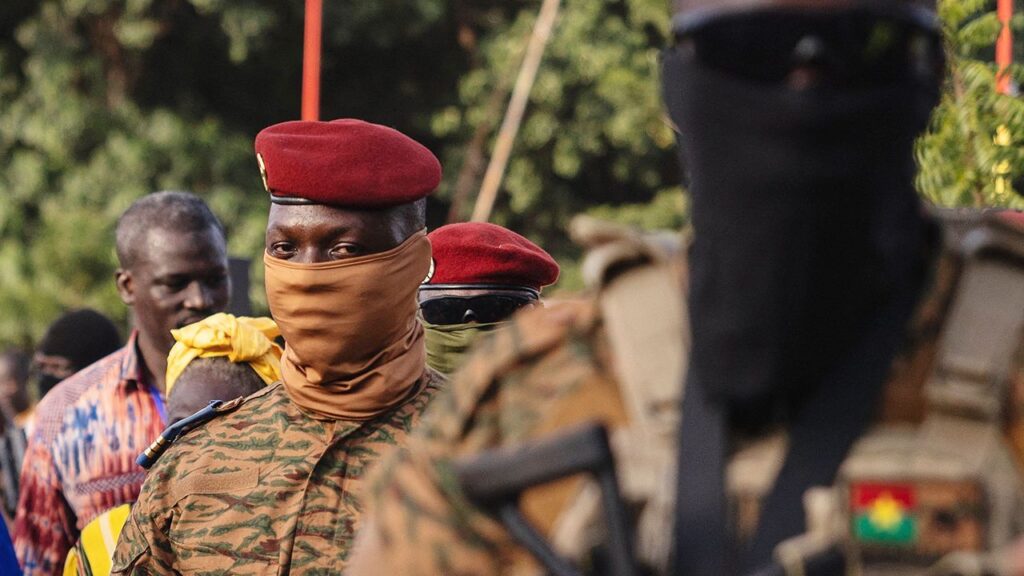Capt Ibrahim Traoré: A Rising Star in African Leadership
At the helm of Burkina Faso’s military government is Captain Ibrahim Traoré, a 37-year-old military leader who is cultivating an image as a pan-African figure committed to liberating his country from Western influences. His messaging resonates strongly across the African continent, as he draws comparisons to the iconic Burkinabé revolutionary, Thomas Sankara.
According to Beverly Ochieng, a senior analyst at Control Risks, “Traoré’s impact is substantial. Even political figures in nations like Kenya have expressed admiration for him.” This shift in sentiment underscores a growing discontent among Africans regarding the ongoing poverty on a continent abundant with resources.
Since seizing power in a coup in 2022, Traoré’s government has forged alliances with Russia, moving away from the country’s historical ties with France. This partnership has included the presence of Russian paramilitary forces in the nation and the implementation of left-leaning economic policies, such as establishing a state-run mining organization.
Economic Reforms and Foreign Relations
Traoré’s administration has mandated that foreign enterprises relinquish a 15% stake in their operations within Burkina Faso and engage in skill-transfer initiatives for local workers. These regulations impacted various firms, including the Russian miner Nordgold, which received clearance for new investments in April. In a bid to enhance the nation’s capacity to harness its mineral wealth, the junta is actively constructing a gold refinery and establishing national reserves of gold.
On the contrary, companies from Western nations are encountering major challenges. Australian firm Sarama Resources initiated arbitration against the Burkinabé government after losing an exploration license, while two gold mines previously owned by a London-listed corporation have been nationalized, signaling a potential shift in foreign ownership in the gold sector.
| Company | License Status | Ownership Change |
|---|---|---|
| Nordgold | Active | Russian-owned |
| Sarama Resources | In Arbitration | Previously foreign-owned |
| London-listed Firm | Nationalized | Burkinabé state-owned |
Traoré’s dynamic leadership style has notably garnered him significant support across Africa. Enoch Randy Aikins from the Institute for Security Studies observed, “He has become one of the most popular leaders on the continent.” This popularity has only grown through a savvy social media presence that sometimes features misleading content aimed at amplifying his revolutionary persona.
Despite the coups and controversies surrounding his rise, Traoré’s enthusiastic rhetoric echoes deeply with youth in Burkina Faso, a country with a median age of just 17.7 years. Rinaldo Depagne from the International Crisis Group highlighted that Traoré’s ability to leverage youthful energy while invoking the legacy of past leaders like Sankara has helped build his image.
Challenges Ahead
Despite the support, Traoré has been unable to fulfill his campaign promise of subduing a decade-long Islamist insurgency that has caused ethnic tensions. His governance approach has also included severe crackdowns on dissent among political opposition, media, and civil groups, which raises concerns about human rights.
While Traoré captivates many with his bold stance against imperialism, he must navigate the complex realities of governance amidst ongoing economic and social challenges. Some experts advise that for a sustainable legacy, he should focus on fostering peace and strengthening state institutions rather than consolidating power and stifling criticism.
As Capt Ibrahim Traoré leads Burkina Faso through these transformative times, the dynamics of his leadership will continue to shape not only the future of his nation but the wider West African region.


